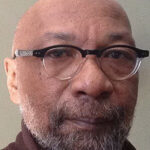Since the Ontario government announced new curriculum guidelines expanding the teaching of sexual health in Ontario schools, which will take effect starting in September, some parents have been crying foul. They have latched on to the idea that they should be the ones to teach their kids about sex, not the schools.
It is important to understand that what the ministry has introduced are guidelines. The only mandated parts of these guidelines are the boundaries – taking into consideration that we are now in the age of the Internet and smartphones; the recognition of same-sex couples; that girls are entering puberty at an earlier age and, frankly, the sexual content easily available in the media. It also sets out some expectations of what pupils are expected to know at the end of a school year. It does not go into the specifics. Teachers and other educational professionals will develop those finer points as they prepare for the classrooms.
Do parents really teach their kids about sexual health? When?
The premise of this updated curriculum is explained as: “Sexual health, understood in its broadest sense, can include a wide range of topics and concepts, from sexual development, reproductive health, choice and sexual readiness, consent, abstinence, and protection, to interpersonal relationships, sexual orientation, gender identity and gender expression, affection and pleasure, body image, and gender roles and expectations.”
Not all of this information will be provided at once. Most of the information will be graduated through the growth of the child – an introduction to the body in the early years leading to an understanding of how relationships work (or should work) in later years.
And here is the question: Bearing these factors in mind, do parents really teach their kids about sexual health? When?
Without Sex Education, Myths Develop
One of the popular myths of times past – particularly in North America – was about how babies were born. A stork brought them. Never mind that the mother carried that child for nine months, her belly growing larger each month.
From the strict separation of males and females in some Muslim sects to the Christian teachings of no pre-marital sex, to some African initiation rites, the rules are varied and often restrictive.
In a way, this could be one of the first lies we, as parents, tell our children. The Hippie revolution of the 1960s and early 1970s erased some of those mythical explanations around sex. An era of “free love” ensued, which took some of the masks off sexual behaviour. Adding to this was the availability of the birth control pill. There was no putting the genie back into the bottle. The question then became: How do parents stop their children from engaging in sexual activity, especially at a very young age?
Every culture has certain boundaries or prohibitions around sexual activity. Some are greatly influenced by religion, some by traditions. From the strict separation of males and females in some Muslim sects to the Christian teachings of no pre-marital sex, to some African initiation rites, the rules are varied and often restrictive.
Sending the Wrong Message
Why should children, from the moment they begin to ask questions about their body, not be told the names of and the truth about some of the functions of their body parts? As a child growing up in Jamaica, the recognized names of penis and vagina for our genitalia were never used. They would have been considered inappropriate in mixed or adult company. My mother taught me to refer to my penis as my “teapot.” My sister’s vagina as a “mango.”
Later, when I learned their real names from schoolmates, I also learned that these were prohibited, distasteful or derogatory. It was also from my schoolmates that I began to learn from them how these “objects” related to each other.
The fact is parents generally are uncomfortable talking about sex to their children. Discussing sex, even as adults, can be seen as risqué and embarrassing.
For some, not much has changed over the years. Charis Newton-Thompson, a retired principal in Toronto high schools, who is originally from Guyana, pointed out that children, especially in high school, still lack a solid foundation in understanding their bodies and sexual health in particular. They still receive and rely on a lot of information – albeit misleading or false – from friends. Girls’ understanding of how they can become pregnant can be woefully misguided.
The fact is parents generally are uncomfortable talking about sex to their children. Discussing sex, even as adults, can be seen as risqué and embarrassing. And that is part of the irony within the North American context where, as noted above, sex is fairly pervasive.
Time for Appropriate Sex Talk
Teachers are trained to deliver lessons about life, beyond teaching mathematics or history or whatever subjects they specialize in. Those who are assigned to teach sexual health, we have to believe, would be trained and practiced in the art of imparting the information in a positive and constructive manner. They will have determined beforehand the appropriate boundaries – how much information, and content limitations, will be imparted and at what age.
They, I would hope, will include a strong message of responsibility – not a passport or permission to engage in sexual activity.
In many ways, some of the reactions to the announcement are not unlike the recent upsurge of the debate around vaccinations – proper health education and protection versus parental control. To some extent, the only lessons in parenting that most of us get are from our parents; we emulate how they handled most situations. What if we were taught parenting by trained specialists in ‘parenting’? Would we be better parents?
Patrick Hunter is a communications consultant and a columnist for Share Newspaper. He is a former communications director at the Canadian Race Relations Foundation and has worked in government and the news media.
An experienced communications professional with very strong writing and editing skills, communications planning, media relations, stakeholder/community relations and issues management; has worked in government, and has significant expertise in anti-racism, human rights and diversity issues.





